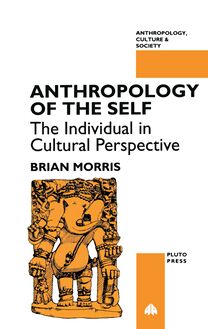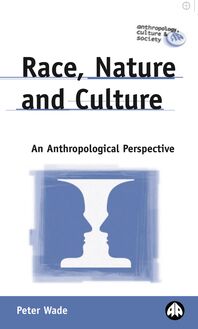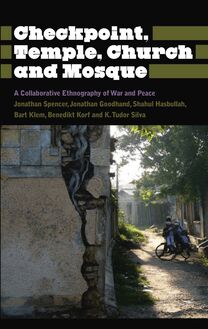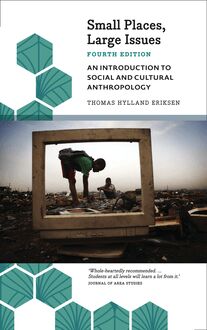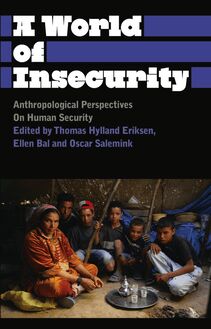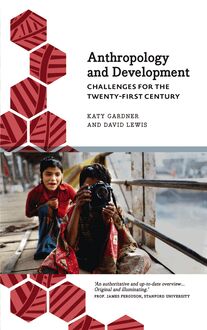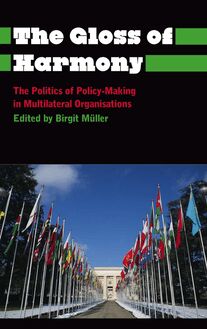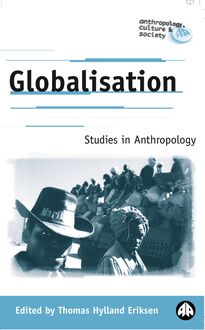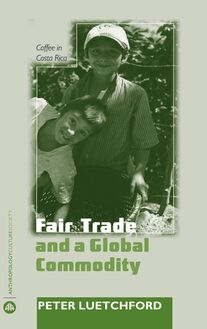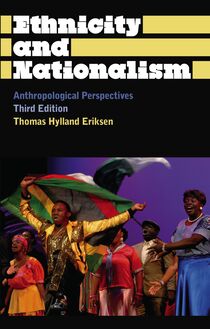-
 Univers
Univers
-
 Ebooks
Ebooks
-
 Livres audio
Livres audio
-
 Presse
Presse
-
 Podcasts
Podcasts
-
 BD
BD
-
 Documents
Documents
-
- Cours
- Révisions
- Ressources pédagogiques
- Sciences de l’éducation
- Manuels scolaires
- Langues
- Travaux de classe
- Annales de BEP
- Etudes supérieures
- Maternelle et primaire
- Fiches de lecture
- Orientation scolaire
- Méthodologie
- Corrigés de devoir
- Annales d’examens et concours
- Annales du bac
- Annales du brevet
- Rapports de stage
La lecture à portée de main
Vous pourrez modifier la taille du texte de cet ouvrage
Découvre YouScribe en t'inscrivant gratuitement
Je m'inscrisDécouvre YouScribe en t'inscrivant gratuitement
Je m'inscrisEn savoir plus
Vous pourrez modifier la taille du texte de cet ouvrage
En savoir plus

Description
Race and ethnic identities are increasingly salient in Latin America. Peter Wade examines changing perspectives on Black and Indian populations in the region, tracing similarities and differences in the way these peoples have been seen by academics and national elites. Race and ethnicity as analytical concepts are re-examined in order to assess their usefulness.
This book should be the first port of call for anthropologists and sociologists studying identity in Latin America.
Preface To Second Edition
Introduction
1. The Meaning Of ‘Race’ And ‘Ethnicity’
2. Black And Indigenous Peoples In Latin America
3. Early Approaches To Blacks And Indigenous People, 1920s-1960s
4. Inequality And Situational Identity: The 1970s
5. Blacks And Indigenous People In The Postmodern Nation-State And Beyond
6. Black And Indigenous Social Movements
7. Studying Race And Ethnicity In A Postmodern And Reflexive World
Notes
Index
Sujets
Informations
| Publié par | Pluto Press |
| Date de parution | 12 mai 2010 |
| Nombre de lectures | 0 |
| EAN13 | 9781783713745 |
| Langue | English |
Informations légales : prix de location à la page 0,0005€. Cette information est donnée uniquement à titre indicatif conformément à la législation en vigueur.
Extrait
Race and Ethnicity in Latin America
Anthropology, Culture and Society
Series Editors: Professor Vered Amit, Concordia University and Dr Jon P. Mitchell, University of Sussex
Published titles include:
Home Spaces, Street Styles: Contesting Power and Identity in a South African City L ESLIE J. B ANK
On the Game: Women and Sex Work S OPHIE D AY
Slave of Allah: Zacarias Moussaoui vs the USA K ATHERINE C. D ONAHUE
A World of Insecurity: Anthropological Perspectives on Human Security E DITED BY T HOMAS E RIKSEN , E LLEN B AL AND O SCAR S ALEMINK
A History of Anthropology T HOMAS H YLLAND E RIKSEN AND F INN S IVERT N IELSEN
Ethnicity and Nationalism: Anthropological Perspectives Second Edition T HOMAS H YLLAND E RIKSEN
Globalisation: Studies in Anthropology E DITED BY T HOMAS H YLLAND E RIKSEN
Small Places, Large Issues: An Introduction to Social and Cultural Anthropology Second Edition T HOMAS H YLLAND E RIKSEN
What is Anthropology? T HOMAS H YLLAND E RIKSEN
Anthropology, Development and the Post-Modern Challenge K ATY G ARDNER AND D AVID L EWIS
Corruption: Anthropological Perspectives E DITED BY D IETER H ALLER AND C RIS S HORE
Culture and Well-Being: Anthropological Approaches to Freedom and Political Ethics E DITED BY A LBERTO C ORSIN J IMÉNEZ
Cultures of Fear: A Critical Reader E DITED BY U LI L INKE AND D ANIELLE T AANA S MITH
Fair Trade and a Global Commodity: Coffee in Costa Rica P ETER L UETCHFORD
The Will of the Many: How the Alterglobalisation Movement is Changing the Face of Democracy M ARIANNE M AECKELBERGH
The Aid Effect: Giving and Governing in International Development E DITED BY D AVID M OSSE AND D AVID L EWIS
Cultivating Development: An Ethnography of Aid Policy and Practice D AVID M OSSE
Anthropology, Art and Cultural Production M ARUŠKA S VAŠEK
Race and Sex in Latin America P ETER W ADE
Anthropology at the Dawn of the Cold War: The Influence of Foundations, McCarthyism and the CIA E DITED BY D USTIN M. W AX
Learning Politics from Sivaram: The Life and Death of a Revolutionary Tamil Journalist in Sri Lanka M ARK P. W HITAKER
RACE AND ETHNICITY IN LATIN AMERICA
Second edition
Peter Wade
First published 1997 This edition published 2010 by Pluto Press 345 Archway Road, London N6 5AA
www.plutobooks.com
Distributed in the United States of America exclusively by Palgrave Macmillan, a division of St. Martin’s Press LLC, 175 Fifth Avenue, New York, NY 10010
Copyright © Peter Wade 1997, 2010
The right of Peter Wade to be identified as the author of this work has been asserted by him in accordance with the Copyright, Designs and Patents Act 1988.
British Library Cataloguing in Publication Data A catalogue record for this book is available from the British Library
ISBN 9780745329482 Hardback ISBN 9780745329475 Paperback ISBN 9781849645515 PDF eBook ISBN 9781783713752 Kindle eBook ISBN 9781783713745 EPUB eBook
Library of Congress Cataloging in Publication Data applied for
This book is printed on paper suitable for recycling and made from fully managed and sustained forest sources. Logging, pulping and manufacturing processes are expected to conform to the environmental standards of the country of origin.
10 9 8 7 6 5 4 3 2
Typeset from disk by Stanford DTP Services, Northampton, England Simultaneously printed digitally by CPI Antony Rowe, Chippenham, UK and Edwards Bros in the United States of America
Contents
Series Preface
Preface to the Second Edition
Introduction
1.
The Meaning of ‘Race’ and ‘Ethnicity’
2.
Blacks and Indigenous People in Latin America
3.
Early Approaches to Blacks and Indigenous People, 1920s to 1960s
4.
Inequality and Situational Identity: The 1970s
5.
Blacks and Indigenous People in the Postmodern and Postcolonial Nation – and Beyond
6.
Black and Indigenous Social Movements
7.
Studying Race and Ethnicity in a Postcolonial and Reflexive World
Notes
References
Index
Series Preface
Anthropology is a discipline based upon in-depth ethnographic works that deal with wider theoretical issues in the context of particular, local conditions – to paraphrase an important volume from the series: large issues explored in small places. The series has a particular mission: to publish work that moves away from old-style descriptive ethnography – that is strongly area-studies oriented – and offer genuine theoretical arguments that are of interest to a much wider readership but which are nevertheless located and grounded in solid ethnographic research. If anthropology is to argue itself a place in the contemporary intellectual world then it must surely be through such research.
We start from the question: ‘What can this ethnographic material tell us about the bigger theoretical issues that concern the social sciences?’; rather than ‘What can these theoretical ideas tell us about the ethnographic context?’ Put this way round, such work becomes about large issues, set in a (relatively) small place, rather than detailed description of a small place for its own sake. As Clifford Geertz once said: ‘anthropologists don’t study villages; they study in villages’.
By place we mean not only geographical locale, but also other types of ‘place’ – within political, economic, religious or other social systems. We therefore publish work based on ethnography within political and religious movements, occupational or class groups, youth, development agencies, nationalists; but also work that is more thematically based – on kinship, landscape, the state, violence, corruption, the self. The series publishes four kinds of volume – ethnographic monographs; comparative texts; edited collections; and shorter, polemic essays.
We publish work from all traditions of anthropology, and all parts of the world, which combines theoretical debate with empirical evidence to demonstrate anthropology’s unique position in contemporary scholarship and the contemporary world.
Professor Vered Amit Dr Jon P. Mitchell
Preface to the Second Edition
A lot has happened in the study of race and ethnicity in Latin America since the first edition of this book appeared in 1997. There has been great increase in the amount of literature produced, especially in relation to indigenous social movements and also in relation to black people, or Afro-Latins or Afro-descendants as the current terminology often has it. A great deal of literature has come out of Latin American academies – most of it in Spanish and Portuguese, of course – as well as North American and European ones. There are new journals, such as Latin American and Caribbean Ethnic Studies , and new associations, such as the section for Ethnicity, Race and Indigenous Peoples, which is part of the Latin American Studies Association. There have been new theoretical focuses or more emphasis on ones that were already around – on sex and gender, on neoliberalism, on citizenship, on transnationalism and diaspora, on political ecology and biodiversity, on materiality and embodiment.
There have also been new overviews of the contemporary scene, including ones that deal mostly with Afro-descendants – for example, Whitten and Torres (1998), Andrews (2004), Dzidzienyo and Oboler (2005), Davis (2007) – and ones that deal mostly with indigenous people, and usually with indigenous movements, such as Sieder (2002), Langer (2003), Warren and Jackson (2003), Postero and Zamosc (2004) and Yashar (2005). The split between indigenous and black people in studies of Latin America, which is a recurrent theme of this book, while it has been overcome in some new scholarship (see Chapters 2 and 6 ), seems still to retain a good deal of force. Overviews that bridge the divide are fewer – see, for example, Leiker et al. (2007), Branche (2008) and the more synthetic overview of Latin Americanist anthropology in Poole (2008) – and seem to be popular among historians (see Chapter 2 ).
There has been an increasing geographical spread, especially in relation to what is sometimes called Afro-America. Although there is still a relative paucity of anthropological, ethnographic monographs – in English – on Afro-descendants in Latin America and although many of those that exist are on Brazil, overall there is now much more material on other parts of the region and I refer to some of this in Chapters 4 , 5 and 6 .
In preparing this second edition, I have remained true to the underlying idea of the first edition. The book is not intended to be an overview of black and indigenous people in Latin America, nor of the scholarly literature that describes and analyses them. Instead, my intention was, and still is, to give an outline of the changing perspectives that have guided scholars interested in race and ethnicity in Latin America and to illustrate, with concrete examples, how these perspectives have guided their research. This is easiest to achieve for the earlier periods, up until about the 1970s. Thereafter it gets a little more difficult, as the field expands and diversifies, and it becomes more tempting to produce an overview of current scholarship in all its themes and focuses. Still, I have tried to pull out the broad shape of the guiding perspectives, even if these are not as easy to see for the 2000s – not having the benefit of hindsight – as they are for previous periods.
I have revised all the chapters, adding new material that reflects recent work and directing the reader to a wider bibliography. Predictably, the chapters that have grown most are Chapters 5 and 6 , which deal with recent approaches and themes. Chapter 6 , for example, has more than doubled in size. The bibliography has also doubled in length. I have purposely biased the bibliography towards material available in English, despite the fact that there is a vast amount of material being produced in Spanish and Portuguese (not to mention French). The audience for this book is mainly in English-speaking countries (althoug
-
 Univers
Univers
-
 Ebooks
Ebooks
-
 Livres audio
Livres audio
-
 Presse
Presse
-
 Podcasts
Podcasts
-
 BD
BD
-
 Documents
Documents
-
Jeunesse
-
Littérature
-
Ressources professionnelles
-
Santé et bien-être
-
Savoirs
-
Education
-
Loisirs et hobbies
-
Art, musique et cinéma
-
Actualité et débat de société
-
Jeunesse
-
Littérature
-
Ressources professionnelles
-
Santé et bien-être
-
Savoirs
-
Education
-
Loisirs et hobbies
-
Art, musique et cinéma
-
Actualité et débat de société
-
Actualités
-
Lifestyle
-
Presse jeunesse
-
Presse professionnelle
-
Pratique
-
Presse sportive
-
Presse internationale
-
Culture & Médias
-
Action et Aventures
-
Science-fiction et Fantasy
-
Société
-
Jeunesse
-
Littérature
-
Ressources professionnelles
-
Santé et bien-être
-
Savoirs
-
Education
-
Loisirs et hobbies
-
Art, musique et cinéma
-
Actualité et débat de société
- Cours
- Révisions
- Ressources pédagogiques
- Sciences de l’éducation
- Manuels scolaires
- Langues
- Travaux de classe
- Annales de BEP
- Etudes supérieures
- Maternelle et primaire
- Fiches de lecture
- Orientation scolaire
- Méthodologie
- Corrigés de devoir
- Annales d’examens et concours
- Annales du bac
- Annales du brevet
- Rapports de stage
